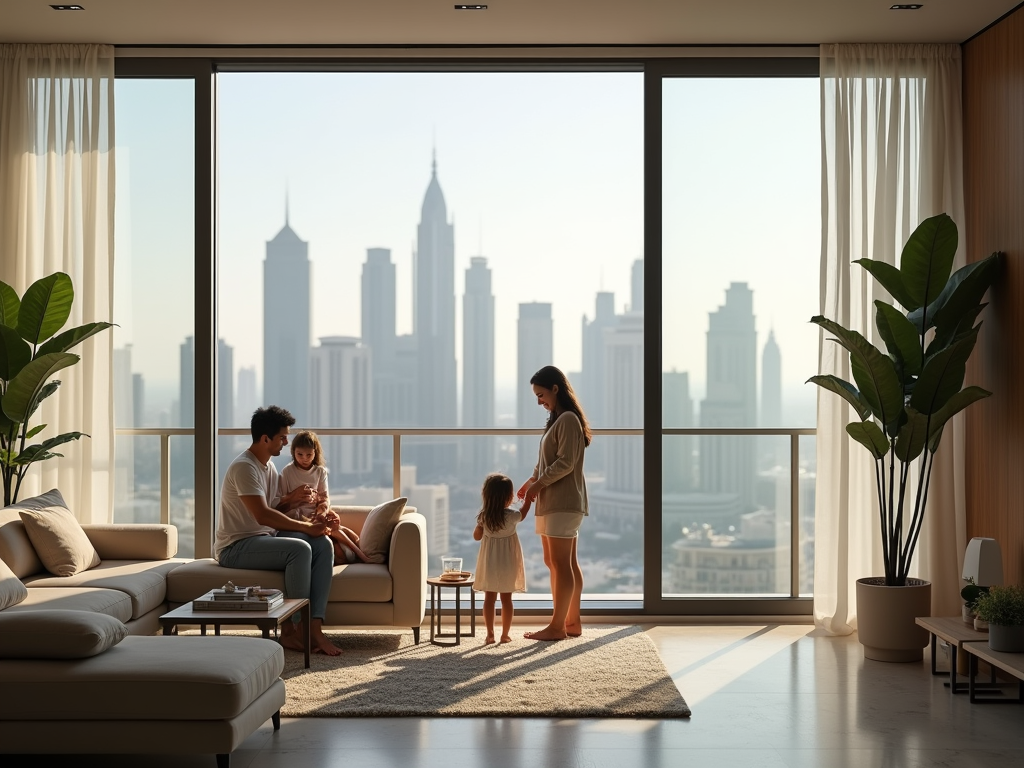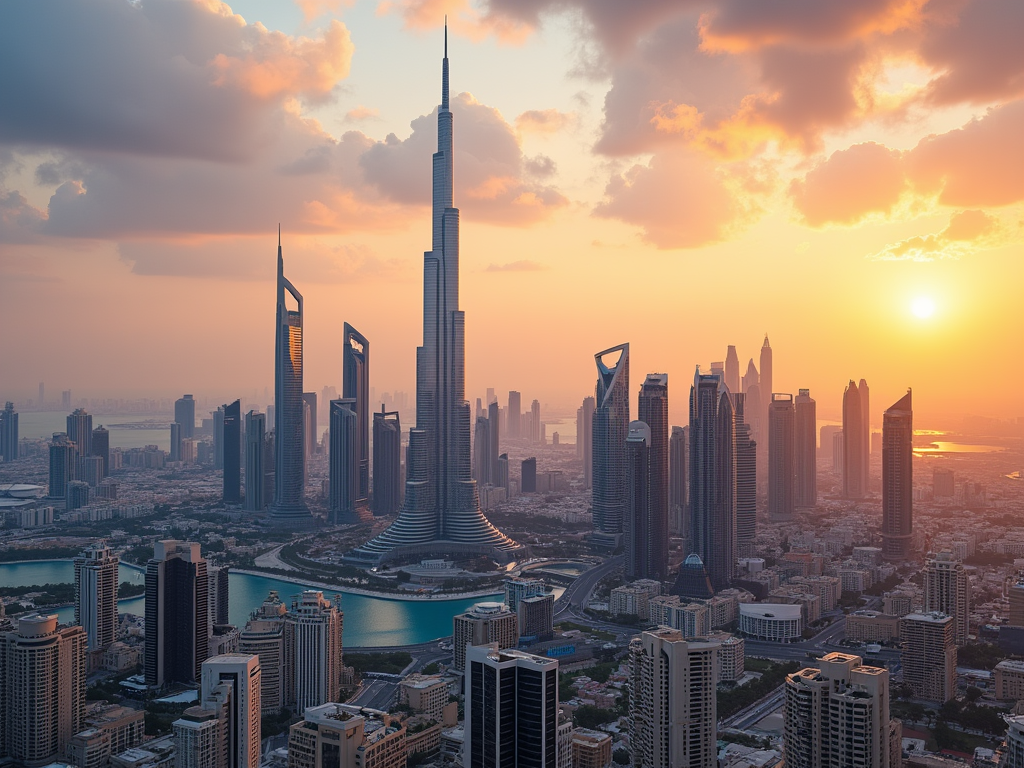Dubai’s real estate market has shown remarkable resilience, continuing to flourish even in the face of various global challenges. Factors such as a strong economy, strategic governmental initiatives, and the city’s status as a global hub play a critical role in maintaining investor confidence and demand for property. Although the world grapples with economic uncertainty, geopolitical tensions, and a shifting landscape post-COVID, Dubai remains an attractive destination for both local and international investors.
The Resilience of the Dubai Economy

The backbone of Dubai’s thriving real estate market is its resilient economy, characterized by diversification and innovation. Unlike many regions that rely heavily on a single industry, Dubai has strategically invested in a range of sectors, including tourism, technology, and finance. This economic diversification has proven essential in cushioning the real estate market from global fluctuations. Furthermore, the government’s commitment to economic growth through various initiatives enhances the stability of the market. Notably, the following factors contribute to the robustness of Dubai’s economy:
- Diversified Revenue Streams: Income from tourism, trade, services, and financial activities reduces dependency on oil revenues.
- Business-Friendly Environment: Simplified regulations and tax-free zones attract foreign investments.
- Infrastructure Development: Continuous improvements in transport and urban facilities support property values and accessibility.
Government Initiatives Promoting Real Estate

The Dubai government actively implements policies aimed at stimulating the real estate sector, recognizing its importance for overall economic growth. Initiatives such as long-term residency visas, property ownership for foreigners, and the establishment of freehold zones have significantly boosted the attractiveness of investing in Dubai real estate. By creating a more conducive environment for investors, the government encourages capital inflows, thus supporting the ongoing growth of the market. Moreover, frequent updates to regulatory frameworks ensure that investors feel secure and well-informed. Some noteworthy initiatives include:
- Golden Visa Program: This initiative allows foreign investors to obtain residency for up to ten years, enhancing their investment security.
- Property Ownership Laws: Changes in legislation have made it easier for expatriates to purchase and own property.
- Smart City Initiative: Investments in technology and sustainability not only improve living conditions but also attract a global audience.
Dubai’s unique geographical position as a bridge between the East and West enhances its appeal as a global business hub. The city is equipped with world-class connectivity, including a highly regarded international airport and one of the busiest ports in the region. Such connectivity facilitates ease of travel, trade, and commerce, which in turn drives demand for real estate. Additionally, Dubai’s growing status as a tourism hotspot draws millions of visitors annually, further stimulating the property market. The integration of luxury hotels, retail malls, and entertainment facilities complements the living experience, boosting property values. The strategic advantages include:
- Accessibility: Major airlines operate multiple routes, providing unparalleled connectivity.
- Business Opportunities: A growing financial district and the presence of multinational corporations attract expatriates.
- Tourism Growth: A steady influx of tourists leads to increased demand for short-term rentals and vacation homes.
Investors’ Confidence and Trends
Investor confidence in Dubai’s real estate market remains strong, driven by attractive returns and a favorable investment environment. The city has consistently garnered attention from global investors seeking lucrative opportunities in rental yields and capital appreciation. Recent trends indicate that even in uncertain times, demand for luxury properties and off-plan developments remains robust. The growing trend of remote work has also led to increased interest in larger living spaces, pushing investors to explore various property options. Furthermore, the property market benefits from:
- Diverse Property Offerings: Whether residential or commercial, Dubai boasts a wide range of properties to meet different investor needs.
- High Rental Yields: The city consistently ranks among the top locations for rental returns in the world.
- Innovative Real Estate Projects: Ongoing developments that feature modern amenities attract discerning buyers.
Conclusion
In summary, Dubai’s real estate market thrives amid global challenges due to its resilient economy, forward-thinking government initiatives, strategic location, and unwavering investor confidence. The city successfully positions itself as a beacon for those looking for stability and growth in their property investments. As global markets continue to grapple with uncertainties, Dubai remains unfazed, proving that its dynamic and diversified real estate sector can withstand external pressures while still attracting interest and capital.
Frequently Asked Questions
1. What factors contribute to the success of Dubai’s real estate market?
Key factors include a diversified economy, government initiatives that attract foreign investors, a strategic location for global business, and robust investor confidence leading to a high demand for properties.
2. How does the government support real estate investment in Dubai?
The Dubai government supports real estate through initiatives such as long-term residency visas, simplified property ownership laws, and investments in infrastructure development to bolster the market.
3. Why is Dubai considered a global business hub?
Dubai’s strategic geographic location, excellent connectivity, and business-friendly environment make it a hub for international trade, tourism, and finance, drawing businesses and investors from all over the world.
4. What types of properties are in demand in Dubai?
There is high demand for luxury properties, larger family homes due to remote work trends, and investment properties such as villas and apartments that cater to both residents and tourists.
5. What is the impact of tourism on Dubai’s real estate market?
The influx of millions of tourists each year leads to increased demand for short-term rentals and vacation homes, thereby enhancing overall property values within the market.
